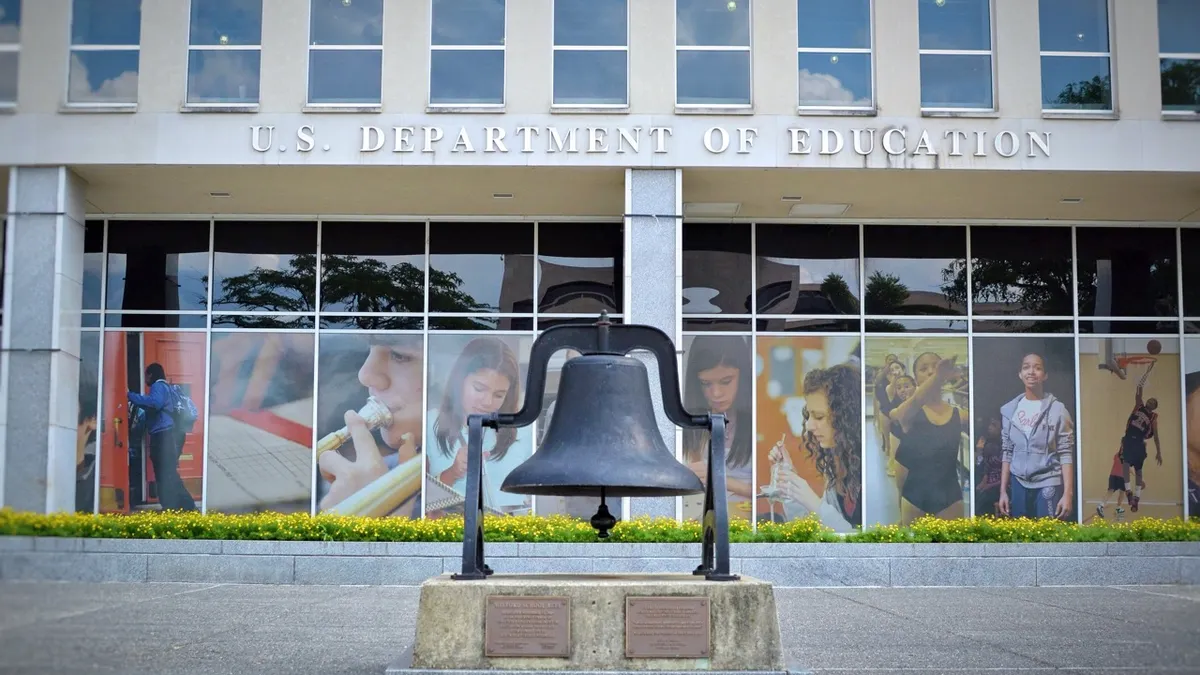Dive Brief:
-
Controversy still abounds over higher ed's portion of the Coronavirus Aid, Relief, and Economic Security (CARES) Act funding as federal agencies attempt to answer colleges' questions.
-
The U.S. Department of Education has released new details about what information institutions need to publicly report on how they use the relief money, and the IRS clarified students can't be taxed on the funds they receive.
-
Industry associations and college leaders have complained that the department's guidance on how the money can be distributed and used has been inconsistent and unclear.
Dive Insight:
The department touted last month that it was moving quickly to hand out the $12.6 billion or so that Congress earmarked in the law for colleges. The pandemic has stressed their budgets greatly as they refund housing and meal costs, and they anticipate a downturn in enrollment and state support.
Half of the funding needed to be passed to students in the form of emergency grants. At first, the department was mostly silent on whether there were restrictions on how they did so.
The department eventually responded to some of the sector's questions. But in doing so, it also barred international and unauthorized students, including recipients of the Deferred Action for Childhood Arrivals (DACA) program, from receiving emergency grants. This decision prompted mass outcry from higher ed leaders and lawmakers, who said the department was flouting Congress' intent that the money benefit the neediest students.
On Wednesday, the department clarified additional reporting requirements attached to CARES money. Within 30 days of getting their portion of the funds, colleges must post publicly to their websites how much funding they were allocated, the amount used for grants, the number of students eligible to receive them, and the count of who ultimately did.
Institutions must also share how they determined which students got the money, and any additional instructions or guidance they gave students about the grants. Schools must also report that information to the department.
Another open question was whether the student grants were considered taxable income. They are not, according to the IRS. This also means students can't claim them as part of a tax credit, the agency said.
Along with the $12.6 billion distributed to the majority of U.S. colleges, and an additional $1 billion specifically for minority-serving institutions, nearly $350 million was set aside for colleges that would be deeply affected by the pandemic.
The law directs the department to prioritize that relief for colleges receiving less than $500,000 from the earlier allocation. However, the department has been widely criticized for using those funds to top off aid for those institutions to get them up to at least $500,000 without first checking to see whether they needed the money.
Many of the recipients are small, specialized institutions that may not enroll many students or be suffering financially. Some schools were unaware they would be getting extra money until The Chronicle of Higher Education contacted them for a news story.
Nothing in the law required the department to focus on the tiny institutions, only that the agency needed to help schools with unmet needs, Ben Miller, vice president for postsecondary education at left-leaning think tank the Center for American Progress, noted on Twitter last week.
"It's hard to overstate how incredibly stupid this action was," he wrote of the department's decision.








